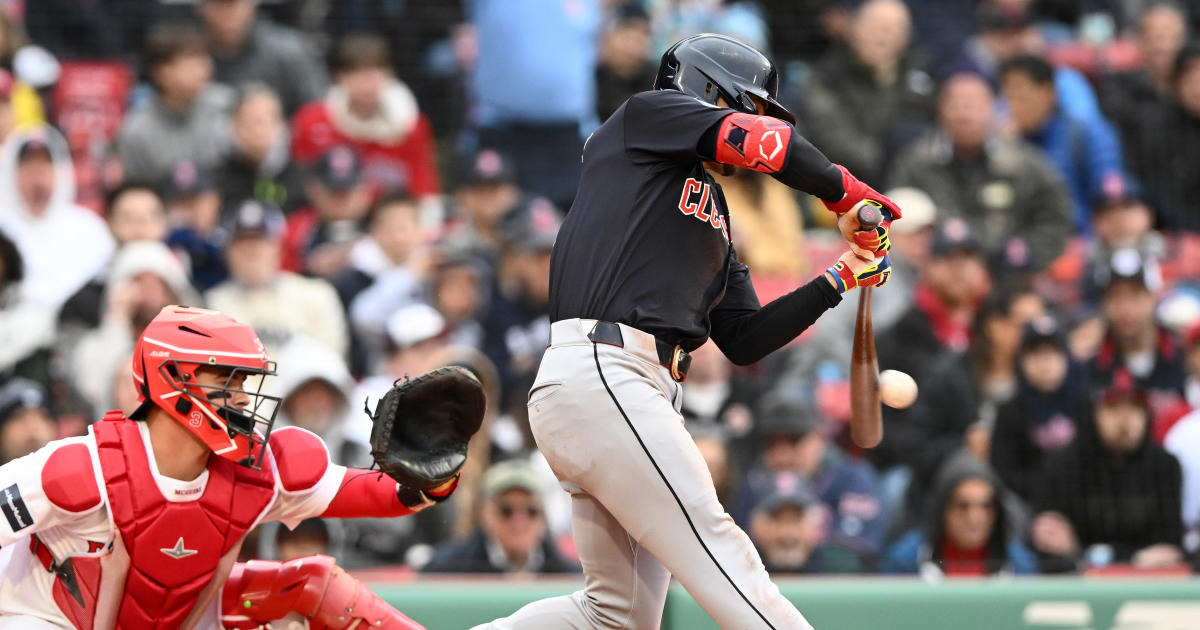How Much Does Home-Field Advantage Actually Matter In MLB Postseason?
By Michael Hurley, CBS Boston
BOSTON (CBS) -- The Boston Red Sox should probably be hosting Game 1 of the ALDS this week at Fenway Park. Probably. After winning 11 straight games, the Red Sox set themselves up to only need a few wins over their final six games to secure home-field advantage in the first round of the playoffs. But they couldn't do it.
In losing all three games in the Bronx and then dropping two of three at home to Toronto, the Red Sox finished the year with a 93-69 record, one game behind Cleveland and two behind Texas in the American League. As a result, the Red Sox will hit the road this week to play Games 1 and 2 in Cleveland.
It feels like a lost opportunity, considering the Red Sox are an explosive offensive team in their home ballpark.
But is it?
There's no way to properly answer that question with any sort of certainty. This is baseball after all. But we can look at recent history -- going back to when MLB adopted the new postseason format in 2012 -- to see how much home-field advantage (or lack thereof) has impacted teams in the postseason.
2015
World Series Winner: Kansas City Royals
Had Home-Field Advantage In: ALDS, ALCS, World Series
AL Top Seed: Kansas City Royals -- Won World Series
NL Top Seed: St. Louis Cardinals -- Lost NLDS, 3-12014
World Series Winner: San Francisco Giants
Had Home-Field Advantage In: Zero rounds (not even the wild-card game)
AL Top Seed: Los Angeles Angels of Anaheim -- Lost in ALDS, 3-0
NL Top Seed: Washington Nationals -- Lost in NLDS, 3-12013
World Series Winner: Boston Red Sox
Had Home-Field Advantage In: ALDS, ALCS, World Series
AL Top Seed: Boston Red Sox -- Won World Series
NL Top Seed: St. Louis Cardinals -- Reached World Series2012
World Series Winner: San Francisco Giants
Had Home-Field Advantage In: NLCS, World Series (despite having third-best record in NL)
AL Top Seed: New York Yankees -- Lost in ALCS, 4-0
NL Top Seed: Washington Nationals -- Lost in NLDS, 3-2
It's a small sample size, but it's fairly representative of the randomness that can come into play every October. We've got two World Series winners that guaranteed itself home-field throughout, one World Series winner that ended up with home-field in the final two rounds solely by circumstance, and one World Series winner that never once had home-field.
The 2012 Giants, in this instance, relate best to the Red Sox, as their 94-68 record left them four games behind Washington and three games behind Cincinnati. It was different then, as the first year of the wild-card game meant that the ALDS went with the first two games at the lower seed and the final three games at the higher seed. Nevertheless, the Giants eliminated the Reds, while the Nationals lost to the wild-card-winner Cardinals, thus giving San Francisco home-field advantage for the NLCS.
Their opponent in that World Series, the Detroit Tigers, made it there without the benefit of home-field advantage at all. They won Game 5 in Oakland in the ALDS before sweeping the Yankees, winning the first two games at Yankee Stadium.
All of that provides some encouragement for the Red Sox, whose road record (46-35) is only a game off from their home record (47-34). Beating Cleveland is far from an impossibility, just as a Blue Jays or Orioles win over Texas shouldn't be considered unrealistic. If that happens, the Red Sox would find themselves with home-field advantage in the ALCS and, if they were to make it so far, the World Series, thanks to Bud Selig's cockamamie rule that for some reason is still in place.
At the same time, home-field proved to be a definite advantage for the 2015 Royals, who won the deciding Game 5 of the ALDS at Kaufman Stadium and opened up 2-0 series leads both in the ALCS against the Blue Jays and in the World Series over the Mets.
The 2013 Red Sox didn't quite take advantage of their home-field in the same way. They lost Game 1 of the ALCS at home to the Tigers before taking two of three in Detroit and wrapping up the series with a win back home in Game 6. They also split their home games to open the World Series before winning Games 4 and 5 in St. Louis. They didn't need a Game 7 in that series, either, winning Game 6 by a 6-1 score.
Home-field advantage proved completely useless for the Cardinals last year. After going 11-8 against the Cubs during the regular season, they managed to win only Game 1 of the NLDS before dropping three straight. The 98-win Angels in 2014 were even worse, as they failed to win even one playoff game. That same year, the 96-win Nationals lost both of their home games (en route to a 3-1 series loss) after going 51-30 at home all year.
The overall point is that there's no overall point. For the Red Sox, who scored nearly one full run per game more at home than on the road, perhaps it would be helpful to play more games at Fenway Park. At the same time, they allowed .81 fewer runs on the road than at home, so the impact there may not be as great as perceived.
If the Red Sox do end up heading home before the World Series, the location of the games is likely to fall far down on the list of reasons why.
You can email Michael Hurley or find him on Twitter @michaelFhurley.



